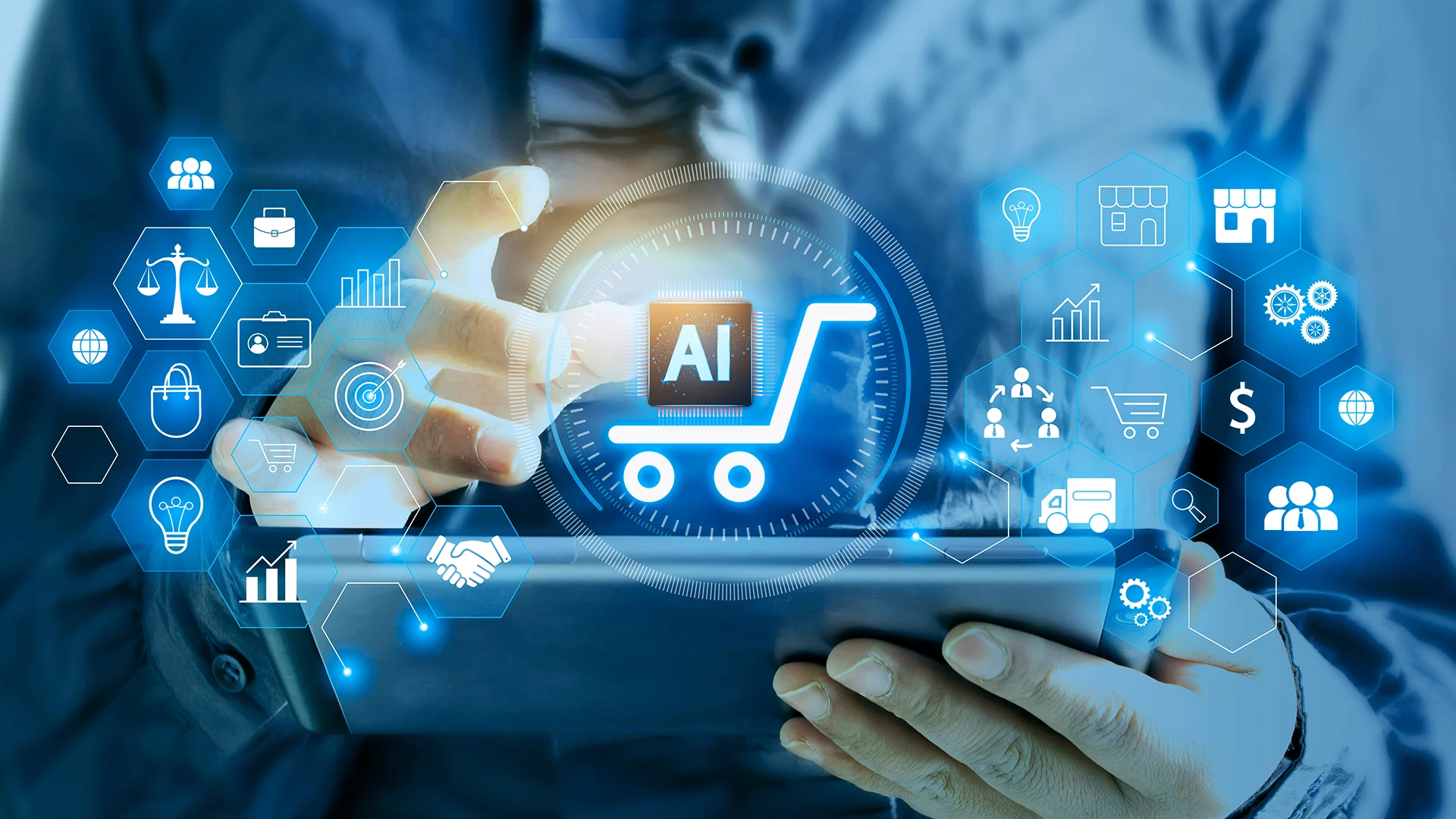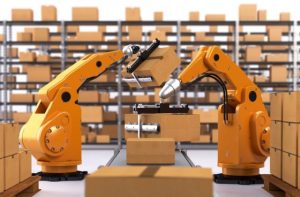AI in E-Commerce: Changing the Game
Introduction The e-commerce development landscape is rapidly evolving, driven by technology, and artificial intelligence (AI) is one of the most transformative forces. From pe...

Introduction
The e-commerce development landscape is rapidly evolving, driven by technology, and artificial intelligence (AI) is one of the most transformative forces. From personalised shopping experiences to streamline business operations, AI has revolutionised how e-commerce companies interact with customers, manage logistics, and make data-driven decisions. As AI technology continues to evolve, its impact on the future of e-commerce will be significant.
This article looks at how game-changing is AI in e-commerce and what businesses need to prepare for in this AI-driven future.
1. Personalised Shopping Experiences
AI’s ability to analyse large amounts of data in real time makes personalised shopping experiences more accurate and effective. AI-powered recommendation systems, such as those used by Amazon and Netflix, analyse customer behaviour, preferences, and past purchases to suggest relevant products. This level of personalisation increases customer satisfaction and conversion rates, driving sales growth.
In the future, AI will take personalisation to the next level. Virtual shopping assistants powered by natural language processing (NLP) can interact with customers in a more human-like manner, understanding their needs and offering customised suggestions. AI-powered augmented reality (AR) is also being integrated into e-commerce platforms, allowing customers to virtually try on clothes or visualise products in their own home before making a purchase.

2. AI-Driven Customer Support
One of the most significant changes in e-commerce is the rise of AI-powered customer support, primarily through chatbots and virtual assistants. These tools provide instant customer service, answering queries and resolving issues 24/7. AI-powered chatbots are becoming increasingly sophisticated, handling complex interactions and offering personalised assistance based on customer data.
In the near future, AI in e-commerce will further improve customer service through improved sentiment analysis and voice recognition technology. AI will be able to detect customer emotions during interactions, allowing companies to respond accordingly, improving the overall customer experience. AI-powered customer support systems will also become more proactive, addressing customer needs before they arise through predictive analytics.
3. Automated Supply Chain and Inventory Management
AI is revolutionising the backend operations of e-commerce businesses, especially supply chain and inventory management. AI-powered systems can predict demand fluctuations, optimise inventory levels, and reduce waste. Machine learning algorithms analyse data from multiple sources, such as sales trends, customer behaviour, and market conditions, to accurately predict inventory needs. This results in reduced inventory shortages and lower storage costs, leading to increased operational efficiency.
In the future, AI-powered systems are likely to autonomously manage entire supply chains, minimising human intervention. With the rise of smart warehouses and AI-powered logistics, companies will be able to optimise the delivery process, reducing delivery times and costs. Drones and autonomous vehicles powered by AI can also become an integral part of the last-mile delivery process, making e-commerce logistics smoother.

4. Dynamic Pricing Strategies
AI is also changing pricing strategies in e-commerce. Dynamic pricing, supported by AI algorithms, allows companies to adjust their prices in real-time based on market demand, competitors’ prices, and customer behaviour. This strategy maximises revenue and keeps companies competitive in a rapidly changing market. AI can analyse huge amounts of data in seconds, helping companies determine the optimal price for a product at any given time.
In the future, dynamic pricing will become even more personalised. AI in e-commerce will analyse individual customer profiles to offer customised discounts or promotions, increasing customer loyalty and sales. With AI’s predictive capabilities, companies can anticipate market changes and adjust their pricing strategies in advance.
5. Fraud Detection and Security
As e-commerce grows, so do the risks associated with online transactions. AI plays a critical role in detecting and preventing fraudulent activity. Machine learning algorithms can detect unusual patterns in transactions, flagging potentially fraudulent activity before it causes harm. AI-powered security systems can analyse data from multiple sources, such as IP addresses, payment methods, and user behaviour, to detect anomalies and protect businesses and customers.
In the future, AI will continue to improve fraud detection and cybersecurity. As cybercriminals become more sophisticated, AI will need to stay one step ahead by constantly learning and adapting to new threats. AI in e-commerce will also play a role in ensuring data privacy and compliance with regulations like the General Data Protection Regulation (GDPR) by automating the monitoring and management of sensitive customer data.

6. Voice Commerce and AI Assistants
The rise of AI voice assistants like Amazon’s Alexa, Google Assistant, and Apple’s Siri is shaping the future of e-commerce. Voice commerce, where consumers use voice commands to search for and purchase products, is becoming increasingly common. AI-powered voice assistants offer a convenient, hands-free shopping experience, allowing consumers to make purchases, track orders, and get product recommendations using simple voice commands.
Voice commerce is expected to grow exponentially in the coming years. AI in e-commerce assistants will increasingly integrate with e-commerce platforms, offering personalised shopping experiences based on voice interaction. Companies will need to optimise their platforms for voice search, focusing on natural language processing and spoken product descriptions to remain competitive in this new era of shopping.
7. Visual Search and Image Recognition
AI is changing the way consumers search for products online. Visual search technology allows users to upload an image and find similar products on e-commerce platforms. AI-powered image recognition algorithms can analyse the visual characteristics of a product and provide accurate search results, improving the user experience.
In the future, e-commerce will likely see further advancements in visual search capabilities. AI will provide more accurate product matches, allowing consumers to find exactly what they are looking for. As image recognition technology improves, it will also be integrated with augmented reality, allowing shoppers to take photos of physical products and find digital versions online to purchase.

8. Data-Driven Marketing and Advertising
AI is already transforming e-commerce marketing by enabling hyper-targeted advertising campaigns. AI-powered marketing tools analyse customer data, browsing behaviour, and purchasing patterns to deliver personalised ads that are more likely to convert. AI-powered programmatic advertising automates the ad buying process, ensuring that businesses reach the right audience at the right time.
In the future, AI in e-commerce will further revolutionise digital marketing by improving predictive analytics and customer segmentation. AI algorithms will predict which products a customer is likely to buy next and create personalised marketing campaigns based on these predictions. AI-powered content generation tools will also allow businesses to automatically create customised product descriptions, blog posts, and ads, saving time and resources.
9. Sustainability and AI-Driven Solutions
Sustainability is becoming increasingly important to both consumers and businesses, and AI can play a major role in promoting eco-friendly practices in e-commerce. AI-powered solutions can help businesses optimise their supply chains, reducing waste, energy consumption, and carbon emissions. Machine learning models can determine the most efficient delivery routes, minimising the environmental impact of deliveries.
As consumers become more environmentally conscious, AI will enable businesses to provide transparency into the environmental impact of their products. AI-powered tools can analyse the sustainability of raw materials, manufacturing processes, and packaging, allowing businesses to offer more sustainable options to their customers.

Conclusion
AI in e-commerce is no longer just a buzzword; it is actively and profoundly changing the future of e-commerce. Companies that adopt AI technologies will be better positioned to deliver personalised customer experiences, streamline operations, and remain competitive in an increasingly crowded marketplace. As AI in e-commerce continues to evolve, its role in e-commerce will only grow, making it imperative for companies to invest in AI-powered solutions now to ensure their future success.
Using AI in e-commerce requires forward-thinking focused on personalisation, efficiency, and security. By leveraging AI to its full potential, companies can improve customer satisfaction, streamline their operations, and contribute to a more satisfying customer experience.
If you have any questions or an idea for a AI development project, contact us via sales@instandart.com or fill out the form on the main page of the site to discuss. We are always ready to help!